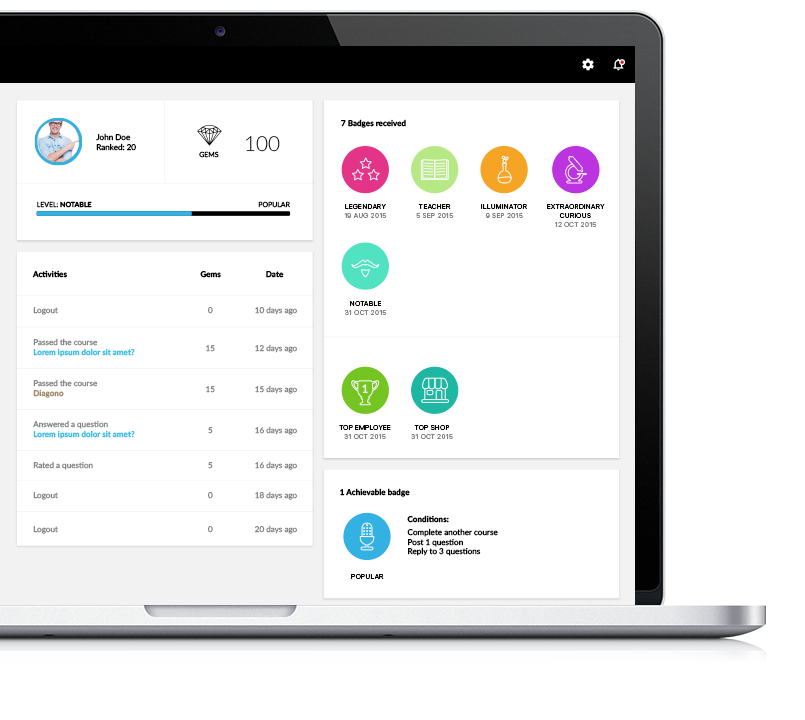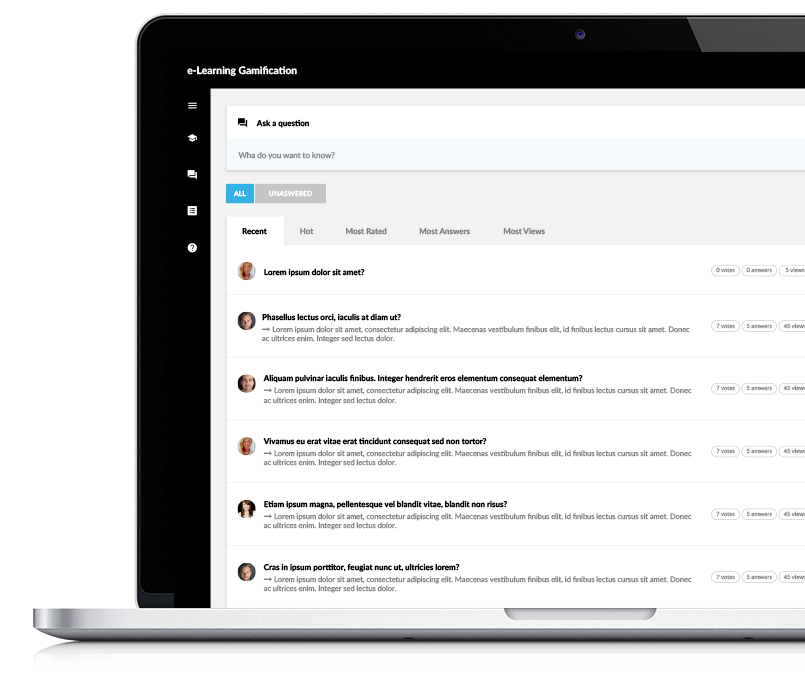The term "Gamification" seems to be popping up everywhere lately but it is often mixed up with Applied Gaming and it may be hard to understand what it is all about. It may even be harder to find someone who has the technical know-how and skills to actually develop games and/or apply their mechanics to education, training or advertisement.

Unlike Gamification, which borrows specific Game Design mechanics and elements such as points, levels and rewards in order to increase motivation and learning retention for educational or business purposes, Applied Gaming calls for real games.
For both, you are going to need someone who actually knows about games: with over 10 years of experience in game development, we are able to produce simulations featuring non-linear storytelling, advergames (games advertising products or services), educational games and even immersive Virtual Reality experiences. They are all very effective training tools for any application, since real learning requires some failure and faithfully simulating work-specific tasks or social interactions gives learners the opportunity to train in a safe environment and fail without fear.

Some good examples of Gamification can be found in the Stack Overflow and Yahoo! Answers communities, the LinkedIn professional social network, Duolingo’s digital language courses and the Zombies, Run! gamified running app.
The Gamification module integrated into our LMS allows you to boost your learners’ engagement and to encourage specific behaviors, as well as collaboration or competition among your team members, by simply fulfilling their natural need for success, status and recognition. Gamification can further improve learning by arousing curiosity and providing real-time feedback, which in turn fuel the learners’ drive to discover and master new skills or knowledge.
Our Gamification APIs, which do not require the use of the DTales platform, let you “gamify” anything, from forums to e-commerce Websites, passing by courses distributed through other LMSs. Here is how they work: any activity aimed at driving desired behaviors is translated into points, which contribute to levelling up and earning badges, through which learners can climb leaderboards and compete with each other to obtain rewards.

Yet Gamification goes beyond the PBL triad (i.e. Points, Badges and Leaderboards used as motivational drivers): besides incentives, what really makes the difference are context, narrative, discovery and interactivity, more tools borrowed from the Game Designer’s tool box.
DTales will be pleased not only to support you with the integration of its Gamification APIs but also to make its talented Game Designers available to you, so that they can do what they do best and help you level up your e-Learning strategy!